I am a Fisherman committed to fishing, it’s lifestyle, community and culture – Aaron Dumler
As a fisherman and boat owner , as well a one who has served in USCG and CCG, and work is towing industry, I am compelled to point out a key difference that increases the risk and will continue to increase the risk associated with commercial fishing.
increase the risk associated with commercial fishing.
PRESSURE: every single day as a boat owner/capt I juggle the costs of fuel, maintenance, continually changing regulatory requirements, provisions, repairs, taxes, vs one thing:Ex vessel price of fish and catching them (a lot of ’em)
Add Variables: weather, low/wildly fluctuating market prices, crew training, then crew turn over, changing ocean/climate cycles, and all the other aspects out of our control. All I can do is try to make a series of good decisions and for those not acquainted with that pressure perhaps this explanation can help you imagine it.
That pressure is on a whole crew of a commercial fishing vessel. In most cases all on board work for a share of the proceeds from a trip. They have the home pressures Joe or Jane Dayjob have, ie car payments, mortgage, school for the kids, but the big difference is they seldom know what they are going to make trip by trip, if anything. if vessel is tied up, catch spoils due to breakdown or any number of other variables that could impact or wipe out a paycheck.
Pressure adds to the overall fatigue and constant stress that working in an already extremely challenging environment causes. It can distract us for just long enough to make a mistake, and there is little room for mistakes on a fishing boat.
If one is sailing for government or commercial marine companies or even coast guards there are options to combat pressure that don’t exist in fishing. A guaranteed paycheck, paid training, Paid time off, stress leave, access to medical/mental support after traumatic events. In season, especially short seasons, for single fishery boats means just keep going. There’s no taking stress leave, there’s just work and maybe pay or no work no pay.
Imagine your home or office (actually both) being pounded relentlessly, more so than any earthquake we have yet to experience on west coast, for hours, and days. Slowly/or instantly everything starts to break. Windows crack. Even 5/8 lexon. Wire runs chafe and short out. Steel piping snaps from flexing of vessel. Planks work and boat leaks more and more. That’s pretty much expected if you spend any continuous time out there.
A new boat would fail eventually but not many new fishing boats are being launched (economics) So we maintain our old boats the best we can given our resources, time, and in event of company owned boats, what they will allow to be done.
Despite all that, many of us are committed to fishing, it’s lifestyle, community and culture.
Some entities in the seafood industry are even prospering financially, the big companies are amalgamating and getting bigger, and the world demand from seafood is only projected to rise exponentially. So what is next for the guy actually on the boat? Is he going to be a foreign temporary worker that doesn’t have similar expectations for safety or pay as a North American? Or are we going to out source fishing to overseas companies. allow them access to our waters to do the work for us and import our own fish back? I’d say the average consumer should be happy to pay a little more for locally caught seafood, but that margin seldom trickles back to the guy on the boat.
In conclusion, a new host of regulations doesn’t seem like the solution. It seems like lip service. When some of the economic/social factors that are slowly destroying small fishing businesses are highlighted, and perhaps some of the pressures that are forcing those of us in the industry to push the limits of equipment, weather, fatigue, stress, body, to just make enough to keep going are addressed or even discussed I’ll be more optimistic that the future for west coast fisherman brightens.
I wish I could offer some solutions to make this safer, more profitable and generally less of a risky business. Perhaps collectively we can impact this industry, but I believe the right changes need to be initiated from the people on the front line and their families, because given the history I don’t expect to many smart initiatives from the managers and regulators of the industry.

































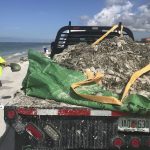


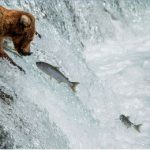
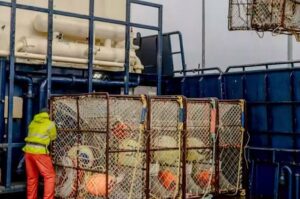
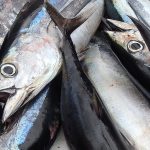
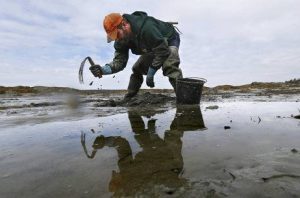
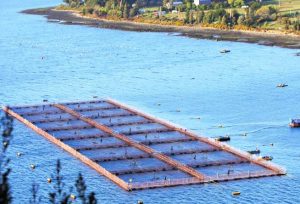

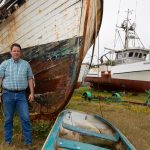
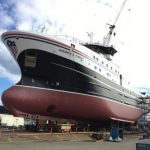
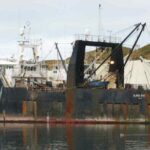
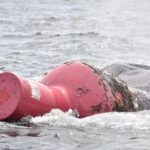
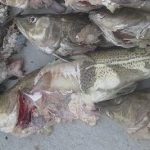



Very good points Aaron. Unfortunately the typical NOAA employee knows and therefor understands nothing of the rigors of a fishermans’ everyday life. The one way to reduce their ranks would be to greatly reduce their job perks to include but not limited to: top-shelf health care plans, pension plans, paid vacations, accrued paid time-off and a host of other waste of taxpayers money bonuses. Here in New England we estimate a 10 to 1 ratio of NOAA employees to fisherman! The amber waves of grain have surely been replaced by amber waves of green; really makes you want to wave the red, white and blue!